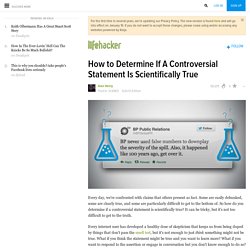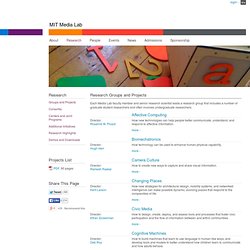

How to Determine If A Controversial Statement Is Scientifically True. A small typo: "...Dr.

Plait warned that [t]here are a few things to watch out for... ". Great article overall, though I wonder if it advocates leaning on authority figures a bit too much. I think it's fairly obvious that the evidence itself is more important than whoever presents it, but I wish this were stated more explicitly. It can be next to impossible for laypeople to determine the difference between "legitimate" experts and their counterparts (and in some fields "legitimacy" may be ill-defined to the point of meaninglessness, and even experts aren't *always* right). The ability to judge data on its own merits (using questions like "was the study double blind? " Flagged Thanks for the correction - and excellent points, thank you! Marcel Roland. Un article de Wikipédia, l'encyclopédie libre.

Le Presqu'homme, roman de Marcel Roland publié en 1908 Marcel Roland (1879-1955) est un écrivain français, célèbre par ses ouvrages de vulgarisation scientifique publiés au Mercure de France. Il fut en outre romancier et conteur pour les journaux. Il est connu des amateurs d'anticipation ancienne pour ses ouvrages : Le Presqu'homme (1908)Le Déluge futur (1910)La Conquête d'Anthar (1913, prix Excelsior)Le Faiseur d'or (1913-1914)Quand le phare s'alluma (1921-1922)Osmant le rajeunisseur (1925).
Il a également publié des nouvelles : « Sous la lumière inconnue », dans le journal Le Miroir (n° 52, 23 mars 1913), « Le Serpent fantôme » et « L'Échelon » (Journal Le Rocambole n° 6), ainsi que plusieurs contes, de 1911 à 1915. Parmi ses œuvres naturalistes, il faut citer : 1) Vie et Mort des Insectes, 19362) La Grande Leçon des petites bêtes, 1938.3) La féerie du microscope.4) Mimétisme et instinct de défense, 1941.5) Amour, harmonie, beauté. Epistemologie et histoire des sciences. Epistemologie et histoire des sciences. Citizen Science Program Overview. National Council for Science and the Environment (NCSE) Field Trips. Science Fair Projects. History of Science. British collections. Home.
Public Library of Science. Exploratorium: the museum of science, art and human perception. Encyclopedia. Research Groups and Projects. Each Media Lab faculty member and senior research scientist leads a research group that includes a number of graduate student researchers and often involves undergraduate researchers.

How new technologies can help people better communicate, understand, and respond to affective information. How technology can be used to enhance human physical capability. How to create new ways to capture and share visual information. How new strategies for architectural design, mobility systems, and networked intelligence can make possible dynamic, evolving places that respond to the complexities of life. How to design, create, deploy, and assess tools and processes that foster civic participation and the flow of information between and within communities. Leonardo Home Page. A Brilliant List of Science Books for People Who Want Their Minds Blown. Introducing The 2012 Alva Emerging Fellows. Earlier this spring we launched our new Alva Emerging Fellowship program, providing cash grants to empower the next generation of inventors to take action on their ideas.

With ideas spanning from iPhone apps to turbines, we received a truly inspiring range of proposals from young innovators striving to change the world for the better. Presented with our friends at GE, the Alva Emerging Fellowships support three innovators under 30 years of age who have demonstrated remarkable potential to create useful and innovative new products or services that will make an impact on the world. Without further ado, here are our three 2012 Alva Emerging Fellows! – Company:IPT Creators: Adam Booher w/ Ehsan Noursalehi and Jonathan Naber Innovation: Open Socket, an affordable prosthetic arm for people in developing countries. The Concept: Traditional efforts to improve the lives of people in developing countries often result in products that are designed for the “Other 90%”.
Www.supportipt.org www.onebeep.org. Ontology Explorer. Symphony of Science. A Global Science Community. Académie des sciences. Formação Ciências Experimentais.